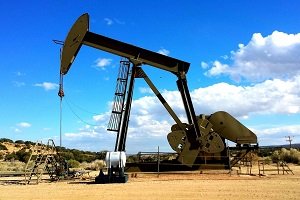
The oil & gas industry is varied and complex, representing many important business functions in the energy sector. It is crucial for these contractors and consultants to address any environmental concerns that could affect their employees, clients, subcontractors, the public, and the environment. In general, oil & gas activities are split into three operations: upstream, midstream, and downstream.
Upstream Energy Operations
The ‘upstream’ segment of the energy industry deals with a very complex set of operations, focusing on the exploration and production of oil and natural gas. This could range from geologic surveys and information gathering to the actual drilling and bringing oil/natural gas resources to the surface. This type of business faces a number of potential pollution exposures and it is critical that the right coverage is in place to protect the company in the event of a loss.
Upstream target risks include:
- Oilfield Contractors: Roustabout contractors, pipe/flowline contractors, site prep contractors, site construction contractors, electrical Contractors, soil remediation contractors, and salt water haulers.
- Oilfield Consultants: “Landmen,” water consultants/brokers, company ‘eyes and ears’ consultants, health and safety training consultants, equipment rental, manufacturer’s representatives, etc.
- Oilfield Product Manufacturers: Fittings, pipes, gaskets, valves, chemicals (including blending), pressure vessels, tanks (pressurized, frac, or otherwise).
- Oilfield Sites: Saltwater disposal wells, contractor’s yards, well schedules, pipelines (of all kinds), above & below ground storage tank farms, blending facilities, etc.
Midstream Energy Operations
The midstream segment of the oil and natural gas industry refers to businesses that transport and store crude oil and natural gas before they are refined and processed into fuels and key elements. Midstream includes pipelines and all the infrastructure needed to move these resources long distances, such as pumping stations, tank trucks, rail tank cars and transcontinental tankers. The very nature of these business operations—transporting and storing oil & gas products—presents environmental exposures that can result in serious property damage or injury. In the event of a pollution claim, midstream energy businesses should have a comprehensive insurance program, including environmental coverage.
Midstream target risks include:
- Midstream Contractors – Storage facility construction, pipeline contractors (including inspection, PIG contractors, etc.), storage tank cleaning/servicing/painting, soil remediation contractors, site beautification contractors, non-destructive testing contractors, industrial cleaning contractors.
- Midstream Consultants – Storage facility consultants, facility inspection, company ‘eyes and ears’ consultants, health and safety training consultants, equipment rental, manufacturer’s representatives, etc.
- Midstream Product Manufacturers – Fittings, pipes, gaskets, valves, storage tanks, pumps, metal goods (oil field & facilities), anything where the failure of the product would cause a pollution claim.
- Midstream Sites – Storage facilities, contractor’s yards, pipelines (of all kinds), processing facilities, blending facilities, etc.
Downstream Energy Operations
The downstream energy industry includes everything involved in turning crude oil and natural gas into thousands of finished products we depend on every day. Professionals who work in this sector range anywhere from refinery contractors and pipeline contractors to product manufacturers and blending facility contractors. These businesses may encounter environmental exposures that can result in serious property damage or injury in the event of a pollution release.
Downstream target risks include:
- Downstream Contractors: Refinery contractors (including: boiler, catalyst, concrete, electrical, plumbing, HVAC, construction, etc.), industrial contractors (including cleaning/sandblasting, painting, etc.), pipeline contractors, pipeline contractors (including inspection, PIG contractors, etc.), site beautification contractors, and remediation contractors.
- Downstream Consultants: Facility inspection, company ‘eyes and ears’ consultants, health and safety training consultants, equipment rental, and manufacturer’s representatives.
- Downstream Product Manufacturers: Fittings, pipes, gaskets, valves, chemicals (including blending), pressure vessels, frac tanks, storage tanks, pumps, and metal goods (facility).
- Downstream Sites: Injection/disposal wells, contractor’s yards, pipelines (of call kinds), refineries, and blending facilities.
Contact Beacon Hill Associates
Please call (800) 596-2156 to discuss an account with an experienced team member or submit a form to request more information about our environmental insurance products. BHA is here to help you!